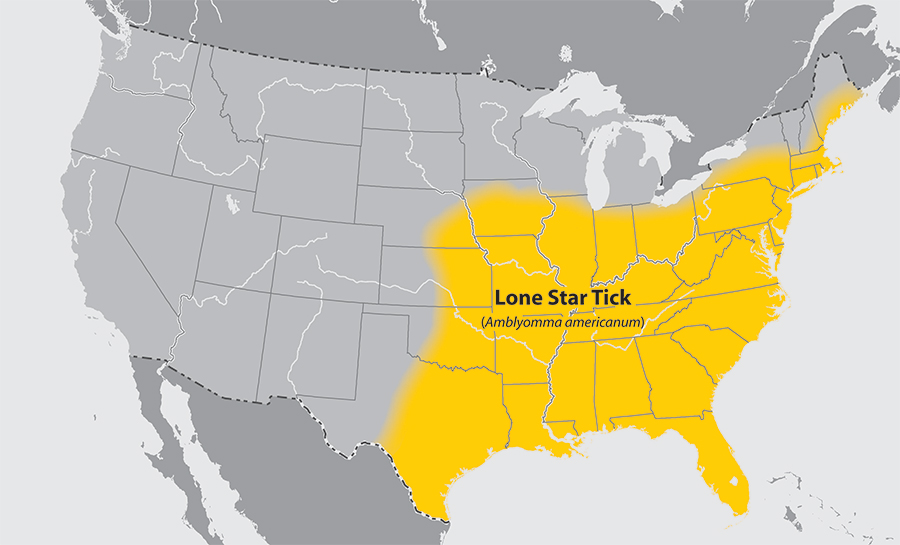TAMPA, Fla. (WFLA) — Meat lovers be wary. For those who tend to go camping in the summer, tick bites might bring more than just some swelling, lyme disease, or itchy discomfort.
The Lone Star Tick, Amblyomma americanum, is starting to spread. With it, a potential to get an allergy to red meat.
“Lone star ticks can be found from central Texas and Oklahoma eastward across the southern states and along the Atlantic coast as far north as Maine,” according to the U.S. Centers for Disease Control and Prevention.

“I live on Long Island and we have tons of lone star ticks. They are everywhere, including our backyard, and we are exposed to them every day in the summer,” Ilia Rochlin, Ph.D., entomologist at Rutgers University’s Center for Vector Biology and Stony Brook University Department of Microbiology and Immunology, said in Entomology Today in March.
The Entomology Today article also said “After essentially disappearing from the northeastern and Great Lakes states for a century, lone star ticks are not only returning, but overrunning some of their old haunts.”
While some ticks spread lyme disease, Lone Stars are known for their ability to pass on what’s called alpha-gal syndrome through their bites.
The disease creates a red meat allergy that, according to the CDC, is “is a serious, potentially life-threatening allergic reaction.” Alpha-gal is a type of sugar found in mammal meat, such as pork, beef, rabbit, lamb, or venison, as well as in some dairy products and gelatin made from cow.
For those affected by AGS, symptoms may take between two and six hours to appear after eating meat or dairy products, or other products which contain alpha-gal. The reactions can include any or all of the following symptoms.
- Hives or itchy rash
- Nausea or vomiting
- Heartburn or indigestion
- Diarrhea
- Cough, shortness of breath, or difficulty breathing
- Drop in blood pressure
- Swelling of the lips, throat, tongue, or eye lids
- Dizziness or faintness
- Severe stomach pain
“Growing evidence suggests that AGS may be triggered by the bite of a lone star tick in the United States, but other kinds of ticks have not been ruled out,” according to the CDC. “Other tick species have been connected with the development of AGS in other countries.”
According to doctors at Washington University, the allergy is becoming more common in the state of Missouri.
Research published in February 2019 said the alpha-gal allergy was increasing in Northern Florida. Still, the increase in the allergy’s prevalence wasn’t directly tied to the Lone Star Tick.
“Prevalence of alpha-gal allergy due to meat allergy is unknown. Tick borne diseases have been reported to be on the rise in Florida,” the research showed. “Despite presence of the Amblyomma americanum tick in the region, there is only one case report of alpha-gal allergy in Florida.”







